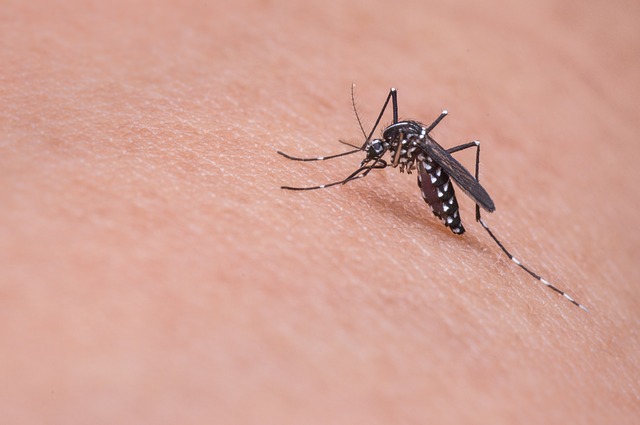When spending time outside, mosquito bites are a reality. Everyone is at risk of contracting West Nile virus, and preventing mosquito bites is important to protect yourself and your family. Mosquito populations in our area have been tested and confirmed in past years to carry West Nile virus. Public Health Sudbury & Districts will be trapping and testing mosquitoes again this year starting in July and continuing to the late summer of 2020.
West Nile virus is spread to humans through the bite of an infected mosquito. Mosquitoes get the virus by feeding on infected birds. The overall risk of becoming infected with West Nile virus is low. Symptoms of West Nile virus can range from having mild to no symptoms. Mild symptoms include:
- fever,
- headache,
- body aches,
- mild rash, and
- swollen lymph glands.
In very rare cases the infection can affect the central nervous system and cause serious symptoms including:
- high fever,
- severe headache,
- stiff neck,
- difficulty swallowing,
- nausea or vomiting,
- confusion,
- loss of consciousness,
- muscle weakness, and
- paralysis.
Late summer is typically the time of greatest risk for contracting West Nile virus. This is when mosquitoes can carry higher levels of the virus, and it is a time when people might not be as diligent about protecting themselves from mosquito bites.
Here are some simple measures you can take to protect yourself and your family:
- Use an insect repellent approved by Health Canada and follow the application recommendations on the package.
- Stay indoors, if possible, from dusk to dawn when mosquitos are most active.
- Wear light-coloured clothing, including long sleeves, long pants, socks, and a hat whenever you are outdoors.
- Check your window and door screens to ensure that there are no tears or holes for mosquitoes to get through.
Mosquitoes need only a small amount of calm, standing water to lay their eggs and for larvae to hatch. Reduce mosquito breeding areas by changing or removing standing water at least once a week from the following areas:
- bird baths
- old tires
- containers, barrels
- flower pot saucers
- swimming pool covers, wading pools
- clogged gutters and eaves troughs
- clogged drainage ditches
- small containers like cans or bottle tops
- unused children’s toys
For more information and resources about West Nile virus, visit www.phsd.ca or call 705.522.9200, ext. 464 (toll-free at 1.866.522.9200).





